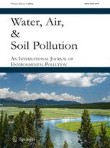
Abstract
Amendment with treated biosolids can increase soil fertility and plant nutrition to the soil, but the fertilization value compared with other commercial soil amendments on the soil ecosystem is poorly understood. The effects of different proportions (0%, 5%, 10%, and 15%) of thermal and pH-treated biosolid applications on the growth performance, nutrient contents, and toxicity performance of carrots (Daucus carota L.) and choy sum (Brassica chinensis var. parachinensis) were studied. Different commercial organic soil amendments, such as biochar, chicken manure (CM), and food waste compost (FWC), were also used as a comparison in the experiment to determine the feasibility of biosolid application on agricultural use. All four soil amendments resulted in similar growth trends for the carrots and choy sum, and this information can be applied in selecting the appropriate species of plants. Through thermal and pH treatments, the treated bi osolids decreased environmental risks and resulted in higher amounts of N and P in comparison to the other soil amendments. The results showed that 10% biosolid-amended soil performed best in terms of plant growth, biomass, and nutrient content for both carrots and choy sum. Nutrient analysis (N, P, and K) and heavy metal analysis (As, Cd, and Pb) on both soil and plants were conducted. It was proven that biosolid application was as functional as CM application and could be used as organic fertilizer to replace biochar and FWC for agricultural use. No heavy metals were found in the pure biosolids, which were safe to use as fertilizers. Utilizing biosolids as fertilizers could be an effective way to address the problem of waste disposal and landfill loading for the environment.



Δεν υπάρχουν σχόλια:
Δημοσίευση σχολίου
Σημείωση: Μόνο ένα μέλος αυτού του ιστολογίου μπορεί να αναρτήσει σχόλιο.